According to The Insider, pharmaceutical chemistry expert, Associate Professor Dmitry Bokov at Moscow State Medical University No. 1 (Sechenov University) is accused of building an international co-authorship network, where the right to appear in scientific articles is bought and sold like a commodity.
In addition, he was involved in systematic plagiarism to submit hundreds of articles to prestigious academic journals in Europe and the US.

Moscow State Medical University No. 1 (Sechenov University) where Associate Professor Dmitry Bokov works. (Photo: Sechenov University)
According to an investigation by the Russian science magazine T-invariant and anti-plagiarism activists, Bokov published 260 articles in five years, including 100 in 2022 alone, which is an average of two articles per week. These impressive numbers put his h-index (academic index) on par with many Nobel Prize winners in Physics.
Buying and selling reputation through the "academic exchange"
Initially, investigators suspected Bokov was doing this to secure research grants from the university. However, this was only a small part of the “publishing machine” he was running. From paying to be listed as a co-author on plagiarized papers, sometimes lightly edited by rewriting software, Bokov gradually became an “author broker,” selling spots in scientific papers to scholars from the Middle East and South Asia.
Platforms for this activity were exchanges such as Mezhdunarodny Izdatel' (Russia), Latvian Science Publisher Company (Latvia) and an unknown platform based in Iran and Iraq. Bokov used his relationships with these publishers to “stuff” his name and that of his clients into scientific articles, creating the impression of international cooperation.
One notable point is that the citations in Bokov’s papers are often unrelated to the main content or cite poor quality works. According to For Better Science, an ecosystem of “citation brokers” has formed, specializing in inserting fake citations into Bokov’s papers, helping both the employer and Bokov inflate the h-index to their mutual benefit.
Nonsense articles
The fraud was so well concealed that popular plagiarism software was stumped. Only by manually checking each word did investigators detect the plagiarism.
A typical example is the article referring to the meaningless concept of “quality tuberculosis” – which is said to be the product of automatic word replacement software, in which “suspension” is mistranslated as “tuberculosis”.

Associate Professor Dmitry Bokov runs a global “plagiarism market”. (Photo: Sechenov University)
As of 2022, at least 19 of Bokov’s papers have been retracted for plagiarism, questionable co-authorship, or citation manipulation. Yet the vast majority of his other papers, especially in low-ranked or “fake” journals, remain undetected and continue to be counted in the academic record.
In addition, the investigation revealed that Bokov also operated in two roles. On the one hand, he was a prestigious nutritionist and pharmaceutical chemist at Sechenov University and was closely associated with Russian and Eastern European research groups. On the other hand, he appeared as a “global co-author”, constantly participating in a series of interdisciplinary works with authors from Asia and North Africa, published in Q1-Q2 journals in the Web of Science and Scopus systems.
However, reputable journals typically only “opened” one or two of Bokov’s papers before detecting irregularities and starting to reject further papers. The researcher then focused on Indian journals in the Q3 group and below, which have looser editorial standards and are more susceptible to manipulation.
Sechenov University also benefits: each article published in a prestigious journal brings funding from the state budget, along with internal rewards for “high-performing” faculty. If an article is retracted, the authors are largely ignored.
Professor Bokov did not act alone. One of his closest associates was Rafael Luque, author of more than 700 papers, who was fired from the University of Córdoba (Spain) for receiving illegal money from Saudi Arabia and Russia.
Now working at RUDN University (Russia), Luque is doing the same thing Bokov did: building a transnational network of fake scientific publications. Both Bokov and Luque are being ridiculed as symbols of the “publishing industry” system in Russia.
Source: https://vtcnews.vn/pho-giao-su-tre-dieu-hanh-thi-truong-dao-van-toan-cau-dung-chi-so-hoc-thuat-ar946688.html


![[Photo] Ho Chi Minh City Youth Take Action for a Cleaner Environment](https://vphoto.vietnam.vn/thumb/1200x675/vietnam/resource/IMAGE/2025/11/04/1762233574890_550816358-1108586934787014-6430522970717297480-n-1-jpg.webp)
![[Photo] The road connecting Dong Nai with Ho Chi Minh City is still unfinished after 5 years of construction.](https://vphoto.vietnam.vn/thumb/1200x675/vietnam/resource/IMAGE/2025/11/04/1762241675985_ndo_br_dji-20251104104418-0635-d-resize-1295-jpg.webp)

![[Photo] Panorama of the Patriotic Emulation Congress of Nhan Dan Newspaper for the period 2025-2030](https://vphoto.vietnam.vn/thumb/1200x675/vietnam/resource/IMAGE/2025/11/04/1762252775462_ndo_br_dhthiduayeuncbaond-6125-jpg.webp)

![[Photo] Ca Mau "struggling" to cope with the highest tide of the year, forecast to exceed alert level 3](https://vphoto.vietnam.vn/thumb/1200x675/vietnam/resource/IMAGE/2025/11/04/1762235371445_ndo_br_trieu-cuong-2-6486-jpg.webp)




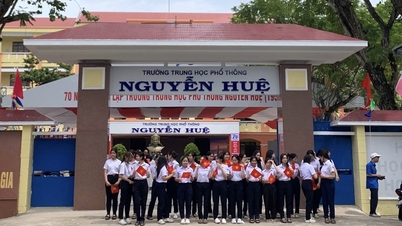

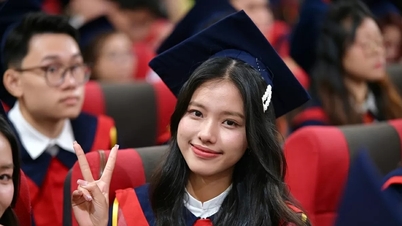







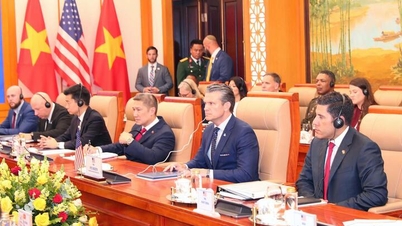




















































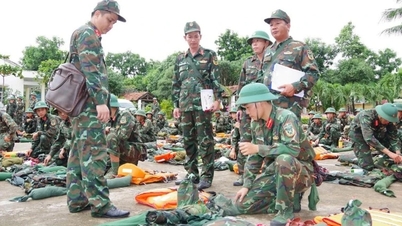



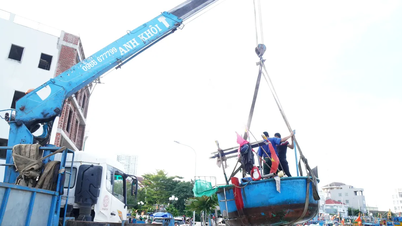
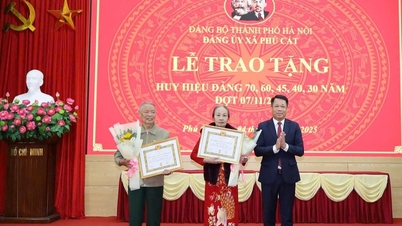














Comment (0)